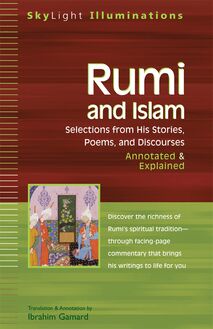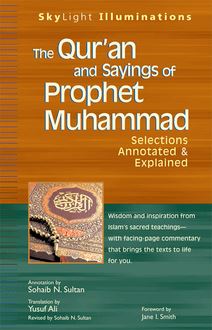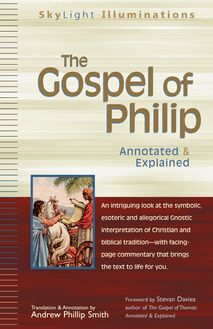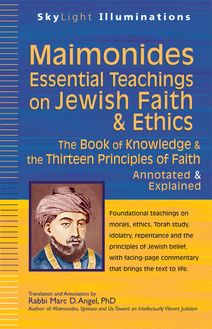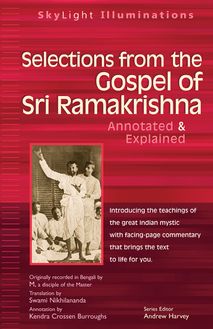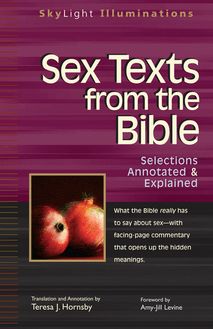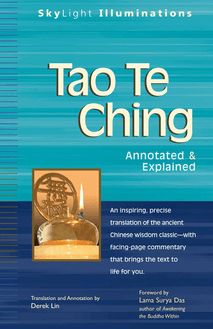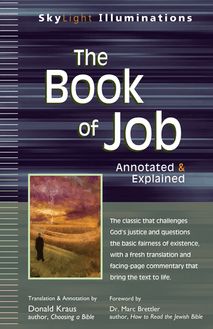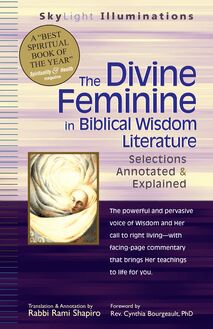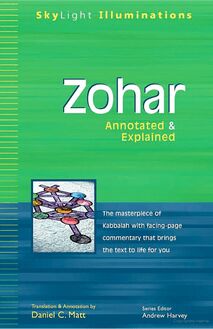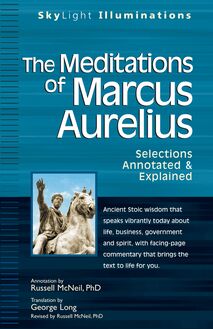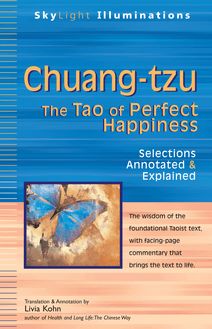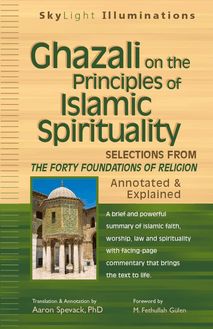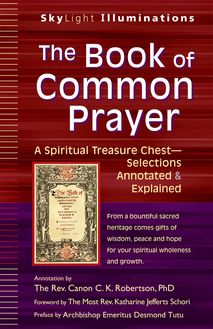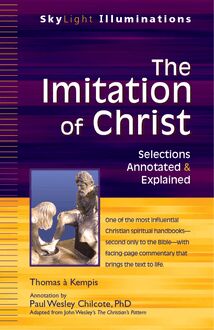-
 Univers
Univers
-
 Ebooks
Ebooks
-
 Livres audio
Livres audio
-
 Presse
Presse
-
 Podcasts
Podcasts
-
 BD
BD
-
 Documents
Documents
-
- Cours
- Révisions
- Ressources pédagogiques
- Sciences de l’éducation
- Manuels scolaires
- Langues
- Travaux de classe
- Annales de BEP
- Etudes supérieures
- Maternelle et primaire
- Fiches de lecture
- Orientation scolaire
- Méthodologie
- Corrigés de devoir
- Annales d’examens et concours
- Annales du bac
- Annales du brevet
- Rapports de stage
La lecture à portée de main
Vous pourrez modifier la taille du texte de cet ouvrage
Découvre YouScribe en t'inscrivant gratuitement
Je m'inscrisDécouvre YouScribe en t'inscrivant gratuitement
Je m'inscrisEn savoir plus
Vous pourrez modifier la taille du texte de cet ouvrage
En savoir plus

Description
The Gospel of Thomas—a book of sayings and wisdom of Jesus compiled as early or earlier than the New Testament gospels—can transform your spiritual life.
There are many academic commentaries on the Gospel of Thomas, but this book has a different aim. It is meant to be a guidebook, that is, a translation of the sayings into daily practice. The goal of such practice is to become Jesus’s twin. This does not, of course, mean becoming an olive-skinned, bearded Mediterranean peasant wearing sandals. It is more about manifesting in our lives the same Christ consciousness revealed in the person we know as Jesus of Nazareth.
—from the Introduction
In the decades since its discovery, the Gospel of Thomas has intrigued people of all faiths around the world. Shedding new light on the origins of Christianity, the Gospel of Thomas raises questions about whether the New Testament’s version of Jesus’s teachings is entirely accurate and complete. In the Gospel of Thomas we see Jesus as a wisdom-loving sage, sharing aphorisms about the value of the present and each person’s role in the creation of the Kingdom of God here on earth. But these inspiring sayings can leave you wondering, "What next?"
Now you can learn how to start applying Jesus’s wisdom to your own life—and, in turn, to the world around you. This unique guidebook leads you through Thomas, offering practices that help you translate Jesus’s wisdom into a more fulfilling, enriching daily life, including:
- Becoming a Spiritual Adult
- Sorting Out the Old and the New
- Being a Healing Presence
- Daring to Be a City on a Hill
- God’s Reign Calls for Ready Hands
- Spirituality Is Not Skygazing
- And much more …
Sujets
Informations
| Publié par | Turner Publishing Company |
| Date de parution | 18 août 2011 |
| Nombre de lectures | 0 |
| EAN13 | 9781594733772 |
| Langue | English |
Informations légales : prix de location à la page 0,1000€. Cette information est donnée uniquement à titre indicatif conformément à la législation en vigueur.
Extrait
The Gospel of Thomas: A Guidebook for Spiritual Practice
2004 First Printing 2004 by Ron Miller
All rights reserved. No part of this book may be reproduced or reprinted in any form or by any means, electronic or mechanical, including photocopying, recording, or by any information storage and retrieval system, without permission in writing from the publisher.
For information regarding permission to reprint material from this book, please write or fax your request to SkyLight Paths Publishing, Permissions Department, at the address / fax number listed below, or e-mail your request to permissions@skylightpaths.com .
Library of Congress Cataloging-in-Publication Data Miller, Ron, 1938- The Gospel of Thomas : a guidebook for spiritual practice / Ron Miller.
p. cm.
Includes bibliographical references.
ISBN 1-59473-047-4(pbk.)
1. Gospel of Thomas (Coptic Gospel)-Criticism, interpretation, etc.
2. Spiritual life. I. Title.
BS2860.T52M54 2004
229'.8-dc22
2004006361
10 9 8 7 6 5 4 3 2 1
Manufactured in the United States of America Cover Design: Sara Dismukes Cover Art: Mummy portrait from Egypt. Wax tempera painting on wood. A young man in Roman dress and contemporary hair and beard style. Members of the Greco-Roman upper class, who adopted the Egyptian custom of mummification, had an image of themselves incorporated over the face of the mummy. Used by permission of Staatliche Antikensammlungen und Glyptothek, M nchen.
SkyLight Paths Publishing is creating a place where people of different spiritual traditions come together for challenge and inspiration, a place where we can help each other understand the mystery that lies at the heart of our existence.
SkyLight Paths sees both believers and seekers as a community that increasingly transcends traditional boundaries of religion and denomination-people wanting to learn from each other, walking together, finding the way.
SkyLight Paths, Walking Together, Finding the Way, and colophon are trademarks of LongHill Partners, Inc., registered in the U.S. Patent and Trademark Office.
Walking Together, Finding the Way Published by SkyLight Paths Publishing A Division of LongHill Partners, Inc. Sunset Farm Offices, Route 4, P.O. Box 237 Woodstock, VT 05091 Tel: (802) 457-4000 Fax: (802) 457-4004 www.skylightpaths.com
In honor of Elizabeth Werrenrath my colleague, my student, my teacher, and my friend on her ninetieth birthday
CONTENTS
Introduction
Prelude: The Faith of a Thomas Believer
1 Becoming a Spiritual Adult
2 Making Life All of a Piece
3 Sorting Out the Old and the New
4 Religion, Organized and Unorganized
5 Being a Healing Presence
6 Peace, Bad and Good
7 Childlike, Not Childish
8 Daring to Be a City on a Hill
9 Becoming Totally Receptive
10 Now/Here or Nowhere
11 Marinating in Mystery
12 Jesus for Christians and Non-Christians
13 Making Space for the Spirit
14 Experiencing God s Reign
15 God s Reign Calls for Ready Hands
16 Spirituality Is Not Skygazing
Notes
Select Bibliography
About SkyLight Paths
Copyright
INTRODUCTION
Einstein once remarked that after the dropping of the atomic bombs on Hiroshima and Nagasaki in 1945, everything had changed but our way of thinking. It is more than a coincidence that in that same year a book buried for centuries was found in Egypt, a book we know as the Gospel of Thomas. 1 From the time I first read it, I felt that it answered Einstein s concern. Here was a book that could actually change our way of thinking.
There are many academic commentaries on the Gospel of Thomas but this book has a different aim. It is meant to be a guidebook, that is, a translation of the sayings into daily practice. The goal of such practice is to become Jesus s twin. This does not, of course, mean becoming an olive-skinned, bearded Mediterranean peasant wearing sandals. It is more about manifesting in our lives the same Christ consciousness revealed in the person we know as Jesus of Nazareth. This image of the twin goes back to the very first words of the Gospel of Thomas: These are the hidden sayings that the living Jesus spoke and that Didymus Judas Thomas wrote down. Now this could simply be a reference to the apostle who in other texts is known as Thomas. But a deeper meaning could lie in the fact that the names Thomas in Aramaic and Didymus in Greek both mean twin.
It must be clear from the outset, however, that being Jesus s twin does not imply membership in any of the churches in today s religious landscape calling themselves Christian. This teaching, like all the most profound spiritual teachings, is for everyone. One need no more be a Christian to benefit from what this volume contains than one need be a Buddhist to learn from the Buddha s Four Noble Truths or a Muslim to be inspired by the Five Pillars of Islam. May we all be Buddha s twin, Moses s twin, and Muhammad s twin as well. May we all come from the world s womb as the spiritual twin of every great teacher and mystic. For in the essence of what they individually manifest, these great teachers are all one.
I speak of becoming Jesus s twin rather than being Jesus s twin. The process is primary, the way more important than the goal, the striving more important than the achievement. Carving words in stone makes sense only after a person is dead. I am suspicious of any religious expression in the past tense. I cannot believe in a reform ed church, an I found it bumper sticker, or a closed canon of revelation, implying that God can no longer speak. Becoming a Thomas Believer, a twin of Jesus, means entering on a path that will end only with our last breath, and perhaps not even then.
Becoming is our nature. End points, closed systems, neat definitions-these simply do not fit the human condition. I refer often in my teaching and writing to the three Ps. All our knowledge is partial, provisional, and perspectival. What we know is only a part and there are others with parts completing the picture we are trying to see. What we know is provisional; it always needs revision. What we know is perspectival. We cannot fully escape seeing things from our own perspective: as a man or a woman, someone poor or someone rich, someone gay or someone straight.
Becoming a Thomas Believer has been a journey for me. That journey falls into two parts that can best be demarcated as Before Thomas and After Thomas. Raised a Roman Catholic, I entered the Society of Jesus (the Jesuits) when I was seventeen and spent twenty years as a Jesuit. I was still a Jesuit when I began my doctoral work in comparative religions at Northwestern University, but I was no longer a Jesuit when I received my doctorate in 1978. I had left the Jesuits and the clerical priesthood in 1975, the year that would forever after be the year one A.T. (After Thomas) in my life s calendar.
That same year, 1975, I cofounded Common Ground, an organization for religious study and dialogue corresponding to the vision of the world that I had imbibed in my doctoral work in comparative religions. In my personal journey as a Christian, I found religious pluralism most consonant with my own experience. The Anglican theologian Alan Race introduced a threefold way of considering other religions: exclusivism, inclusivism, and pluralism. The Harvard theologian Diana Eck has developed this model and made it popular in interreligious dialogue. 2
Exclusivism is the belief that all religious truth lives within one tradition and, therefore, anything outside that tradition is wrong. This is the position of fundamentalists of every stripe. The second option, inclusivism, holds that there is truth in other sacred traditions, but the fullness of truth is embodied in only one of these, one s own. This has been the official position of Roman Catholicism since the Second Vatican Council in the 1960s. Pluralism stems from the hypothesis that if one religion is true, then all religions are probably true. This approach sees the diversity of religions as somewhat parallel to the diversity of languages. There are different ways of articulating the divine mystery and different paths leading to it.
As a Christian, I found two primary roadblocks to being a pluralist. First, there is the normative Christian teaching of the unique character of Jesus. If he is the only begotten Son of the Father then there is simply nothing comparable in any other religion. Second, if, in order to be saved, we must be explicitly connected with Jesus s atoning death for the ravages of original sin, how can one be open to other religions as potentially just as true as one s own? I came to resolve these conundrums in my own life and theology when I realized that there were other forms of Christianity that understood Jesus s uniqueness in a different way and rejected the theology both of original sin and of an atoning death. The Gospel of Thomas articulates a first-century form of precisely such an alternative Christian theology.
Neither original sin nor atoning death appears in the Gospel of Thomas s 114 sayings attributed to Jesus. The Gospel of Thomas helps us to realize that there has been an alternative sense of being Christian all along, a more mystical kind of Christian tradition that has usually been hidden and often been persecuted by the larger Church. And yet, whispers of it are heard in the Christian Testament, in other Christian writings through the centuries, and especially in the testimony of the mystics. This hidden current is emerging once again in our own day in the writings of scholars such as Matthew Fox, Bishop John Shelby Spong, Marcus Borg, Karen King, and Elaine Pagels.
But isn t the Gospel of Thomas gnostic and heretical? Having read every book on gnosticism that I could get my hands on, I concluded with a sense of defeat that I simply couldn t grasp its unifying reality. Then it occurred to me that perhaps the reason I couldn t perceive its unifying reality was that it didn t have one. In other words, maybe
-
 Univers
Univers
-
 Ebooks
Ebooks
-
 Livres audio
Livres audio
-
 Presse
Presse
-
 Podcasts
Podcasts
-
 BD
BD
-
 Documents
Documents
-
Jeunesse
-
Littérature
-
Ressources professionnelles
-
Santé et bien-être
-
Savoirs
-
Education
-
Loisirs et hobbies
-
Art, musique et cinéma
-
Actualité et débat de société
-
Jeunesse
-
Littérature
-
Ressources professionnelles
-
Santé et bien-être
-
Savoirs
-
Education
-
Loisirs et hobbies
-
Art, musique et cinéma
-
Actualité et débat de société
-
Actualités
-
Lifestyle
-
Presse jeunesse
-
Presse professionnelle
-
Pratique
-
Presse sportive
-
Presse internationale
-
Culture & Médias
-
Action et Aventures
-
Science-fiction et Fantasy
-
Société
-
Jeunesse
-
Littérature
-
Ressources professionnelles
-
Santé et bien-être
-
Savoirs
-
Education
-
Loisirs et hobbies
-
Art, musique et cinéma
-
Actualité et débat de société
- Cours
- Révisions
- Ressources pédagogiques
- Sciences de l’éducation
- Manuels scolaires
- Langues
- Travaux de classe
- Annales de BEP
- Etudes supérieures
- Maternelle et primaire
- Fiches de lecture
- Orientation scolaire
- Méthodologie
- Corrigés de devoir
- Annales d’examens et concours
- Annales du bac
- Annales du brevet
- Rapports de stage
